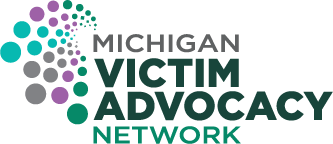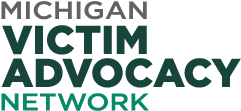Acknowledging Mental Health in Our Work
Mental health plays an important role in our lives every day, including at work. In the crime victim advocacy field, we see mental health in a variety of ways: in personal challenges and successes our clients and their families have, in accessing mental health care and services, in ensuring our workplaces have proper support and spaces to talk about what we ourselves are dealing with, and so many other ways.
From deciding between calling 988 and 911 to preventing and treating opioid misuse in older populations, this month’s compilation includes webinars, articles, and more to consider about mental health and discusses how we can offer quality support to our clients and each other. As always, please don’t hesitate to contact us if you’re looking for more!

Advising People on Using 988 Versus 911: Practical Approaches for Healthcare Providers
December 2024
Substance Abuse and Mental Health Services Administration
This Practical Guide provides key considerations for guiding people in the appropriate use of 988 and 911. By offering clear explanations, real-world scenarios, and addressing common concerns, providers can prepare people and their trusted networks to make informed decisions based on the urgency and nature of their needs. The guide emphasizes the distinctions between 988 and 911, aiming to reduce confusion and ensure timely, appropriate responses to both behavioral health crises and physical emergencies. It offers practical steps for integrating crisis care into daily practice, real world scenarios, sample scripts, and de-escalation techniques.

SAFE-T Suicide Assessment Five Step Evaluation and Triage
December 2024
Substance Abuse and Mental Health Services Administration
This two-page resource gives a brief overview on conducting a suicide assessment using a five-step evaluation and triage plan. The five-step plan involves identifying risk factors and protective factors, conducting a suicide inquiry, determining risk level and interventions, and documenting a treatment plan.

2023 U.S. National Survey on the Mental Health of LGBTQ+ Young People
July 2024
Trevor Project
The Trevor Project’s 2023 U.S. National Survey on the Mental Health of LGBTQ Young People amplifies the experiences of more than 28,000 LGBTQ young people ages 13 to 24 across the United States. This survey asked about mental health and suicide risk, access to mental health care care, anti-LGBTQ victimization, ways to support LGBTQ young people, and more.

Workplace Mental Health & Well-Being
Last reviewed January 2025
Department of Health and Human Services
This web-article discusses mental health in the workplace. It details the “Five Essentials” to support workplace mental health and well-being: protection from harm, connection & community, work-life harmony, mattering at work, and opportunity for growth. It links to a document from the Surgeon General that discusses these essentials in more detail and offers a foundation that workplaces can build upon.

Supporting Trans Mental Health: Uncovering Barriers and Building Solutions
October 2022
FORGE
This webinar discusses higher rates of mental health issues in trans communities, explores why rates might be higher, talks about common barriers trans community members face in accessing effective mental health assistance, overviews what steps providers can take to reduce those barriers, highlights resiliency seen in the community, and more.

Preventing Opioid Misuse and Treating Opioid Use Disorders in Older Adults
December 2024
Substance Abuse and Mental Health Services Administration
Opioid misuse and use disorders among older adults are a growing public health problem that is often overlooked and undertreated. This brochure discusses age-appropriate Opioid Use Disorder prevention, treatment, and recovery approaches and provides key facts, considerations, program examples, and resources for older adults.

Issue Brief: Co-Occurring Mental Health and Substance Use
November 2024
Substance Abuse and Mental Health Services Administration
This detailed Issue Brief offers valuable information to State Mental Health Authorities about co-occurring mental health and substance use disorders. The document highlights the commonality of CODs and negative outcomes in the absence of evidence-based integrated care, provides an overview of treatment barriers and potential solutions, and the effectiveness of integrated care. It also highlights six guide principles to work with individuals with CODs.
Looking for more resources on mental health?
Looking for more resources on mental health?
Check out last year’s resources on mental health: Let’s Talk About Mental Health

